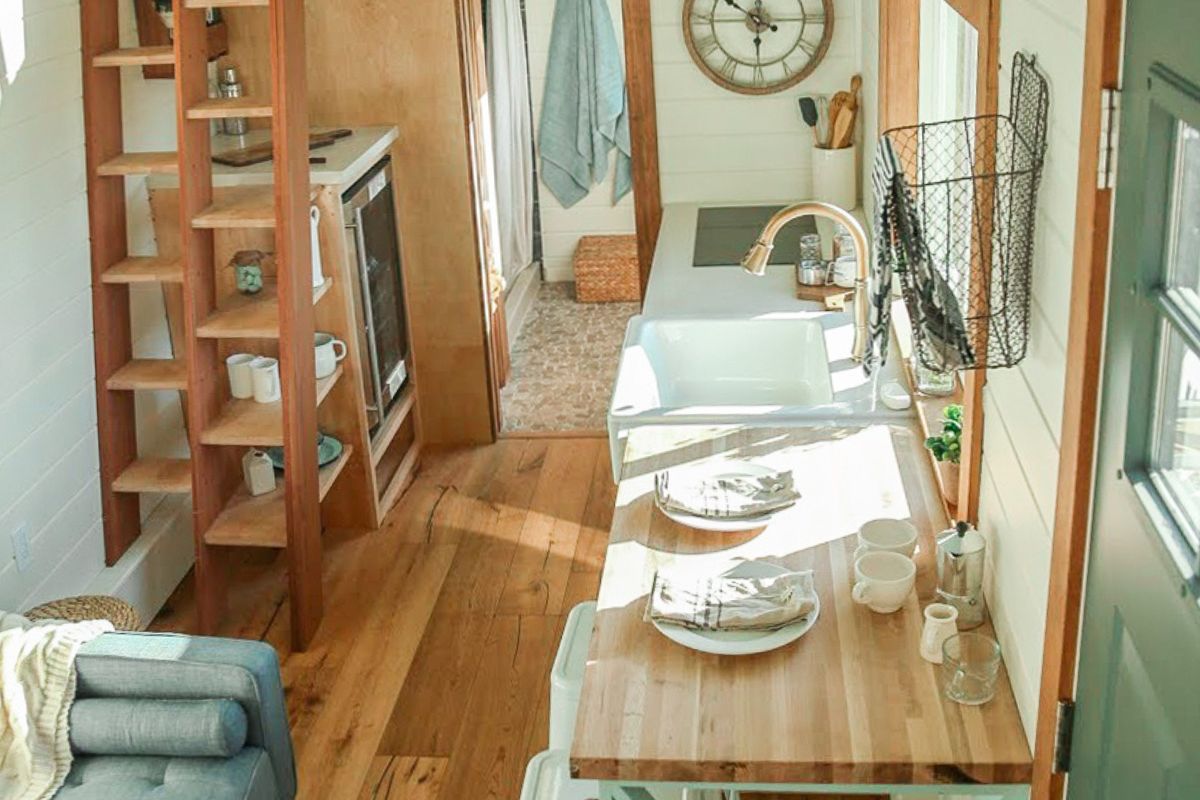The importance of sustainability in everyday life continues to grow, pushing individuals to seek eco-friendly solutions in various aspects of their homes. Eco-friendly plumbing solutions not only reduce water waste but also lower utility bills and promote a healthier environment. By prioritizing these practices, homeowners can contribute to a more sustainable future while enhancing the efficiency of their plumbing systems.
Innovative technologies and materials have emerged, making it easier than ever to implement sustainable plumbing practices. From low-flow fixtures to rainwater harvesting systems, these options provide practical alternatives that minimize environmental impact. Understanding how to integrate these solutions can transform traditional plumbing into a more responsible, eco-conscious approach.
Exploring eco-friendly plumbing solutions offers a pathway to sustainable living that benefits both the home and the planet. By making informed choices, individuals can enjoy the advantages of modern plumbing while doing their part to conserve precious resources.
The Importance of Eco-Friendly Plumbing
Eco-friendly plumbing solutions play a critical role in promoting sustainability. They contribute positively to environmental health and enhance the efficiency of water usage in homes and businesses.
Impact on Environment and Health
Eco-friendly plumbing systems significantly reduce harmful impacts on the environment. Traditional plumbing often leads to pollution through leaks and chemical runoff.
Using sustainable materials decreases the carbon footprint associated with manufacturing and disposal. For instance, eco-friendly pipes made from recycled materials limit waste.
Moreover, healthier water systems prevent contamination, promoting better public health. Green plumbing practices reduce the exposure to toxic substances, benefiting both humans and wildlife.
Conservation of Water Resources
Water scarcity is an urgent issue worldwide. Eco-friendly plumbing employs innovative techniques to conserve this precious resource efficiently.
Low-flow fixtures, such as toilets and faucets, can reduce water usage by up to 50%, minimizing water waste. Rainwater harvesting systems also collect and reuse water, further contributing to conservation efforts.
Implementing greywater recycling systems allows households to utilize wastewater from sinks and showers for irrigation. This practice not only conserves potable water but also encourages sustainable landscaping and gardening methods.
Innovative Eco-Friendly Plumbing Technologies

There are various emerging technologies that enhance plumbing systems' efficiency while minimizing their ecological impact. These solutions prioritize resource conservation, energy efficiency, and sustainable practices in plumbing.
Low-Flow Fixtures and Appliances
Low-flow fixtures are designed to reduce water consumption without sacrificing performance. Showerheads and faucets featuring aeration technology can maintain water pressure while using significantly less water. For instance, a standard shower head uses about 2.5 gallons per minute, while a low-flow version can use as little as 1.5 gallons.
Toilets equipped with dual-flush systems allow users to select a lower volume flush for liquid waste. This can save up to 13,000 gallons of water per year for an average household. Additionally, water-efficient appliances such as dishwashers and washing machines are designed to use less water while maintaining cleaning effectiveness, contributing to overall water conservation efforts.
Greywater Reuse Systems
Greywater reuse systems facilitate the recycling of water from sinks, showers, and washing machines for non-potable uses like irrigation and toilet flushing. These systems can reduce household water usage by 30-50%.
Components of greywater systems include gravity-fed plumbing that directs the water to storage tanks, filtration to remove contaminants, and pumps to redistribute the water for irrigation purposes. Implementation may vary by local regulations, so it is crucial to check guidelines before installation.
In addition, educational resources are available to help homeowners understand proper greywater management, ensuring efficient and safe reuse practices. Such systems not only lessen water demand but also promote sustainable landscaping.
Tankless Water Heaters
Tankless water heaters, also called on-demand water heaters, provide hot water only as needed. Unlike traditional tank systems, which continuously heat water, these units are energy-efficient by eliminating standby heat loss.
Benefits of tankless systems include energy savings of 24-34% compared to conventional heaters. They have a longer lifespan, typically lasting over 20 years, and their compact size allows for versatile installation options.
Installation can be more costly upfront, but potential savings on energy bills and space efficiency may justify the investment. Proper sizing and location are essential factors to consider to maximize these heaters' efficiency and performance.
Eco-friendly plumbing solutions are essential for sustainable living. Start by installing low-flow fixtures, such as faucets and showerheads, to reduce water consumption. Consider rainwater harvesting systems to collect and reuse rainwater for irrigation. Use tankless water heaters for energy efficiency, providing hot water on demand while saving space.
Sustainable Plumbing Practices for Homes
Implementing sustainable plumbing practices can significantly reduce water waste and promote eco-friendly living. Regular maintenance helps identify issues early, while choosing the right materials enhances environmental responsibility.
Regular Maintenance and Leak Detection
Regular maintenance is crucial for achieving sustainability in plumbing systems. Homeowners should schedule routine inspections to catch leaks before they escalate. Minor leaks can waste gallons of water daily, which can lead to higher bills and increased environmental impact.
Utilizing plumbing services in Las Vegas, Nevada, like Active Plumbing & Air Conditioning, offers professional expertise in identifying leaks. Homeowners can also invest in leak detection systems that provide real-time alerts for any water anomalies.
Performing regular checks on fixtures, pipes, and appliances ensures efficient operation. Such practices save both water and money, leading to a more sustainable household.
Environmentally-Friendly Material Choices
Choosing eco-friendly materials is key to sustainable plumbing. When replacing pipes or fixtures, homeowners should consider options like PVC alternatives, copper, or PEX tubing.
These materials not only contribute to lower environmental impact but also enhance the longevity of plumbing systems. Additionally, installing low-flow fixtures can drastically reduce water consumption.
Sourcing materials from local suppliers in Las Vegas ensures a smaller carbon footprint. Active Plumbing & Air Conditioning provides insight into available eco-friendly products tailored for the region, making it easier for homeowners to make informed choices.
These sustainable practices contribute to a healthier environment while also improving the efficiency of the home’s plumbing system.
Additionally, opt for biodegradable plumbing materials and ensure regular maintenance to prevent leaks, conserving both water and energy. By adopting these practices, you can significantly minimize your environmental impact while enjoying modern plumbing conveniences.






Share: